President Nelsen sent out a statement to students on Monday discouraging usage of the term “illegal” to describe undocumented students, and added that a soon-to-come “Hornet Honor Code” will contain clauses encouraging inclusivity and diversity on campus.
“Every student deserves to feel safe on campus,” Nelsen wrote via SacSend. “No student should be taunted or suffer verbal abuse.”
Nelsen also encouraged compassion for undocumented students and their families, as well as Muslim faculty, staff and students in light of the “inauguration pending in January,” referring to when Donald Trump will become president of the United States.
“Our country may be fragmented, but our Hornet Honor Code can – and will – bind us together,” President Nelsen wrote.
The topic of an official statement about the term “illegal” aimed at students on campus was raised during an emotional student-led forum discussing a “sanctuary campus” and safe zones on Friday, Dec. 9 in the Multi-Cultural Center, which President Nelsen attended.
Margarita Berta-Ávila, a professor in the College of Education, proposed during the Friday forum that President Nelsen’s statement about “sanctuary campuses” should be more specific about which policies will support students.
“(We should be) specific as to what we are not going to allow … and not just maintain it as a superficial generality, because I think that is where we are getting caught up right now in that we are not clear as to what we will support and won’t support,” Berta-Ávila said. “There are many universities across the nation now that are writing these types of letters that … are being very clear as to what will be tolerated and accepted and what will not be.”
Nelsen said he was unable to provide specifics until the beginning of next year when the Hornet Honor Code will begin, as he is still working with the Committee on Diversity and Equity (CODE), Chief of Police Mark Iwasa, Faculty Senate and the Diversity Task Force.
The forum, organized by Project LEAD and Define American, as well as other student organizations advocating for minority groups, discussed student experiences with microaggressions on campus, diversity among faculty, staff and administration, and the future of student demonstrations and advocacy.
Microaggressions are “the everyday slights, indignities, put-downs and insults that people of color, women, LGBT populations or those who are marginalized experience in their day-to-day interactions with people,” according to Columbia psychology professor Derald Sue.
Students in the forum related their experiences with microaggressions, such as professors using the term “illegal” to refer to people living in the United States without legal permission.
“Microaggressions are constantly being told to students of color… (You can) actually say something to those professors, and you do, but then you run the risk of the professor looking at you different,” said Stefanie Lucero, a student participating in the forum. “We get those statements saying ‘Oh, well maybe you should take the WU (unauthorized withdrawal), maybe you should take a semester off.’ … I just need someone to give me something to be able to cope, instead of trying to push me out of this damn educational pipeline that I worked so hard to be in.”
Lucero also talked about her experiences in the lack of diversity among her bosses while employed on campus.
“Having no administration want to really engage in a conversation with me, and having your white director blossom at an event, and having someone like (ASI President) Patrick (Dorsey) introduce me to a white administration, and having to give them my resume for them to even just greet me. But as soon as (Dorsey) walked away, they walked away.”
This sentiment was shared by Kipcia Gonzalez, who said that felt that she was “tokenized” where she worked and felt that a diversity program for administration, staff and faculty jointly undertaken with their student staff was needed.
Associated Students, Inc. (ASI) has also played a role in tokenizing students, Lucero said while holding back tears, relating her experiences of being “one of the few persons of color in there.”
ASI President Patrick Dorsey, who also attended the meeting, gave a statement at the closing of the forum.
“I do take it to heart,” Dorsey said. “We’ve been trying to do our best, but apparently we’re not getting the results that you, the students, are all looking for.”
Students in the forum also expressed worry about the future of student advocacy, especially with spring graduation approaching.
“Students who are student leaders, who work in these centers, work in these departments, work in these progressive thinking bases, I think a lot of us feel this burden,” said Denise Fernandez. “We have to keep advocating for ourselves. … It’s very taxing to the point where sometimes you just don’t want to do it anymore… (But) who else is going to do it?”
Yosa Lagunas Guerrero, another attendee at the forum, shared the same sentiment as Fernandez.
“Some of us might work, some of us hold spaces in other places on campus. Some of us are working within these spaces to create resources for students that are marginalized and are targeted,” Lagunas Guerrero said. “I think students are asking for a further step to some sort of sense of closure, some sort of sense of a next step.”
Lucero, who plans to graduate in spring 2017, worries about the lack of student leaders to hold demonstrations on campus.
“The school has done a lot of progression, but not enough for me to sit here and graduate next spring and think that students of color are going to be well taken care of, and that’s scary,” Lucero said. “There’s another generation that’s graduating… Who’s going to pick up afterwards? … If (they) don’t put on those student demonstrations, who would be? Nobody.”
Suggestions put forth by the forum were DREAMer ally and safe space training being recommended to administration, staff, faculty and students.
President Nelsen, like Dorsey, was silent during the forum, choosing to listen to students, until asked by a student at closing to give a statement.
While progress has been made, Nelsen said, giving as an example Saturday’s Black and White Gala organized by the Martin Luther King Jr. Center and the hiring of three out of nine faculty who are persons of color for the upcoming semester, Nelsen also admitted that “we have a long way to go.”
“What I’ve heard here — a lot of pain,” Nelsen said. I take it incredibly personally, it means a lot to me. I want to see us progress. I wish we had made it a lot more than we have.”
President Nelsen also announced a potential donation of $350,000 from an unnamed private donor to start a McNair program for undocumented students.
The McNair Scholars Program is a two year program that provides workshops and other services to prepare students for a Ph.D. degree.
“We are blooming, and we will continue, but we have a long ways to go,” Nelsen said.

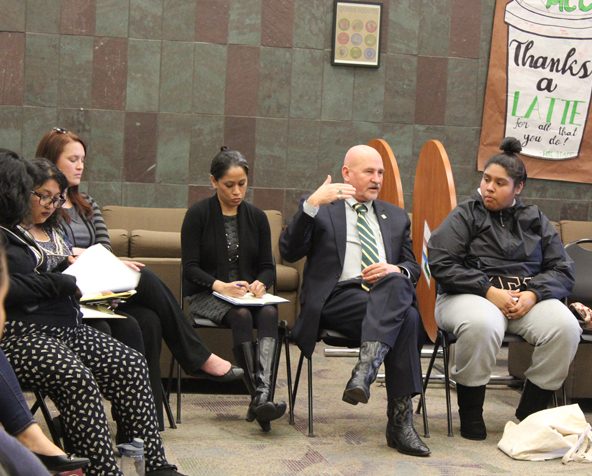
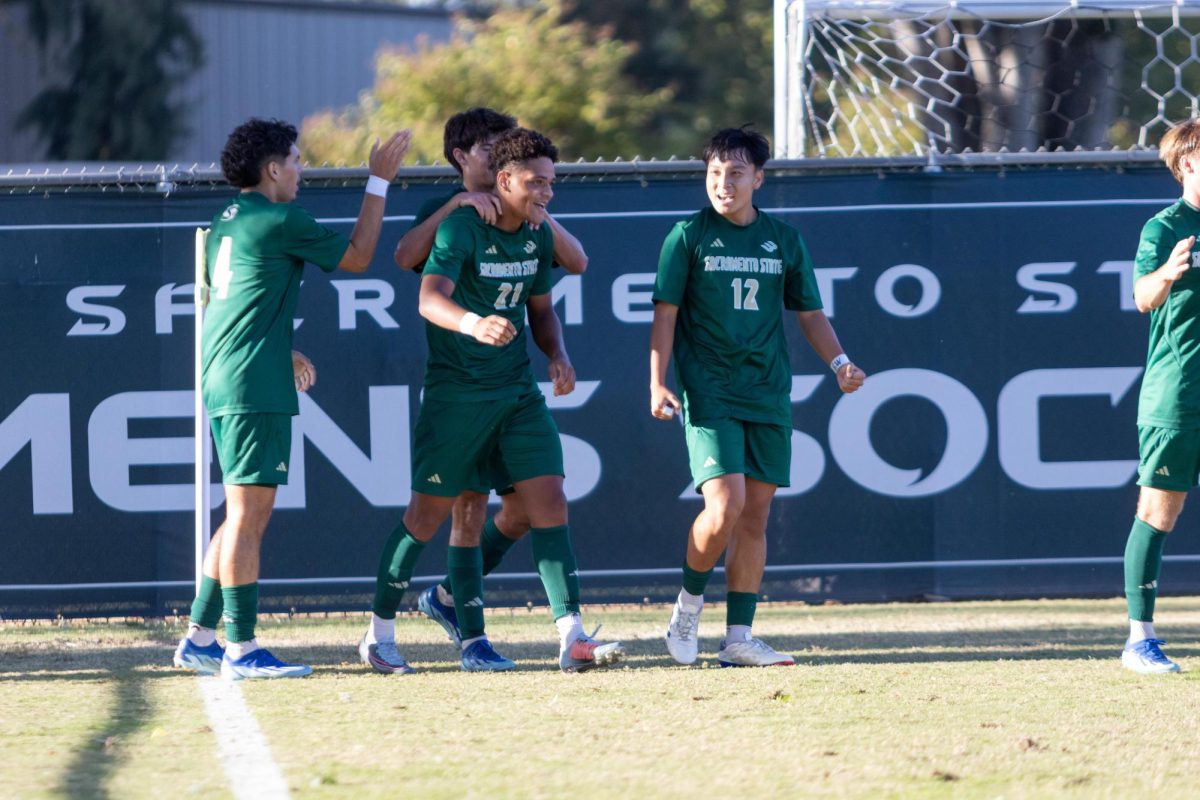



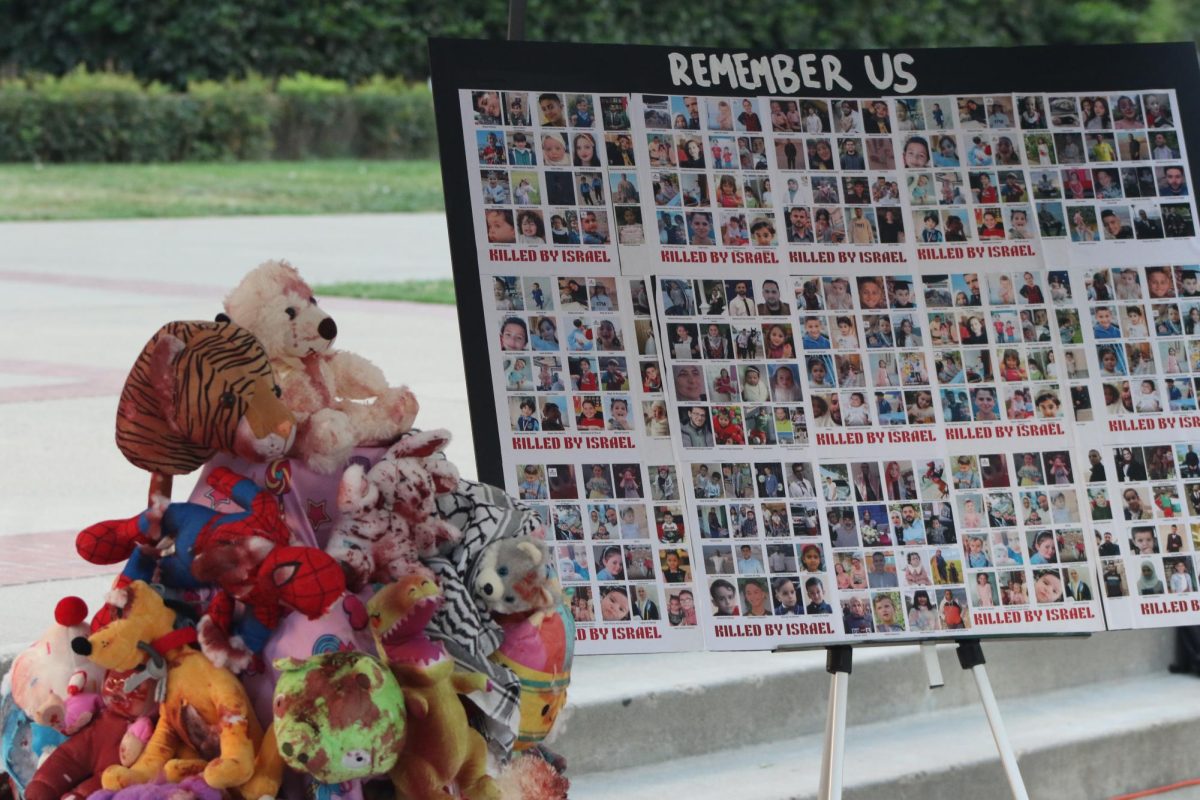
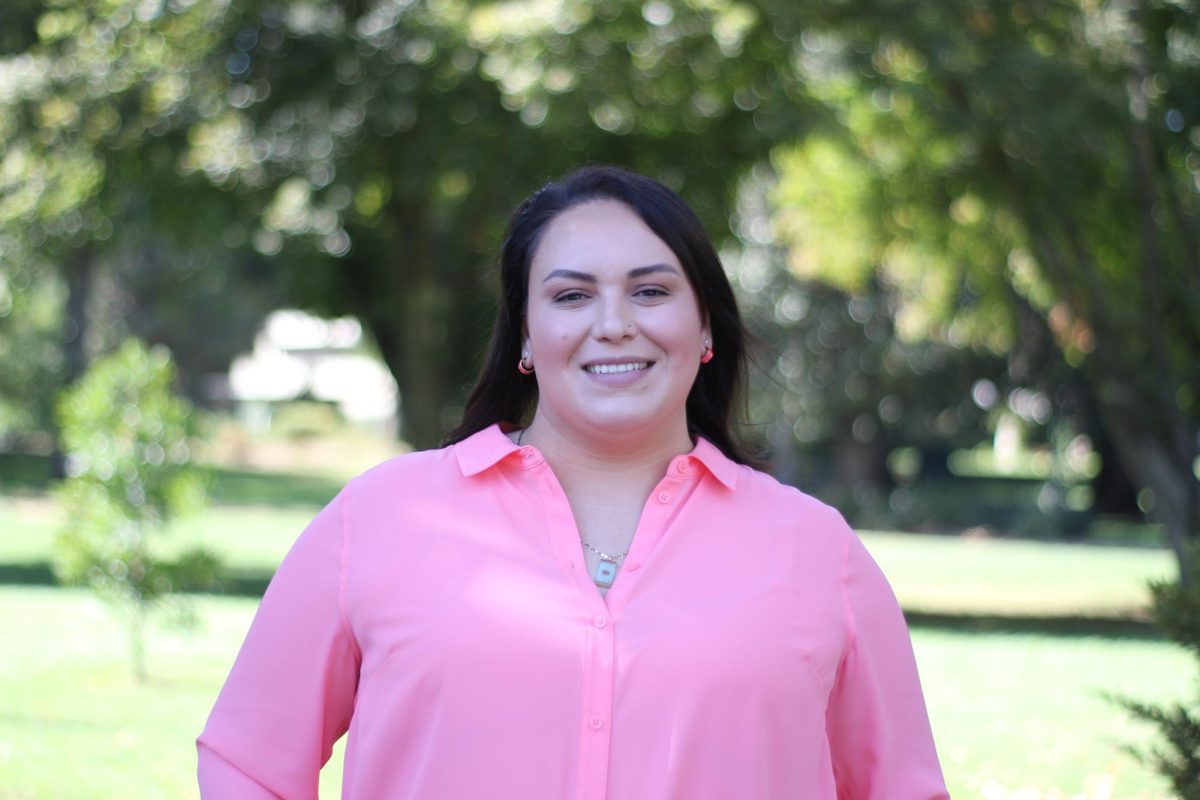
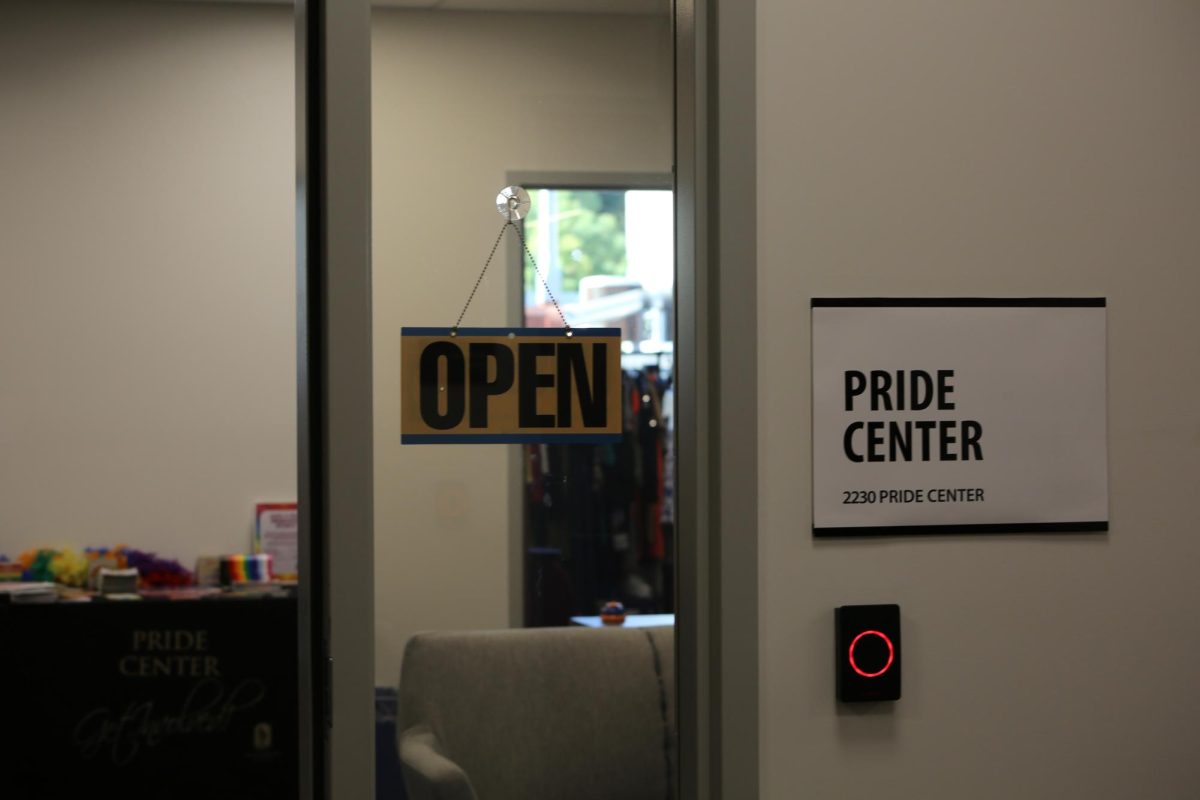
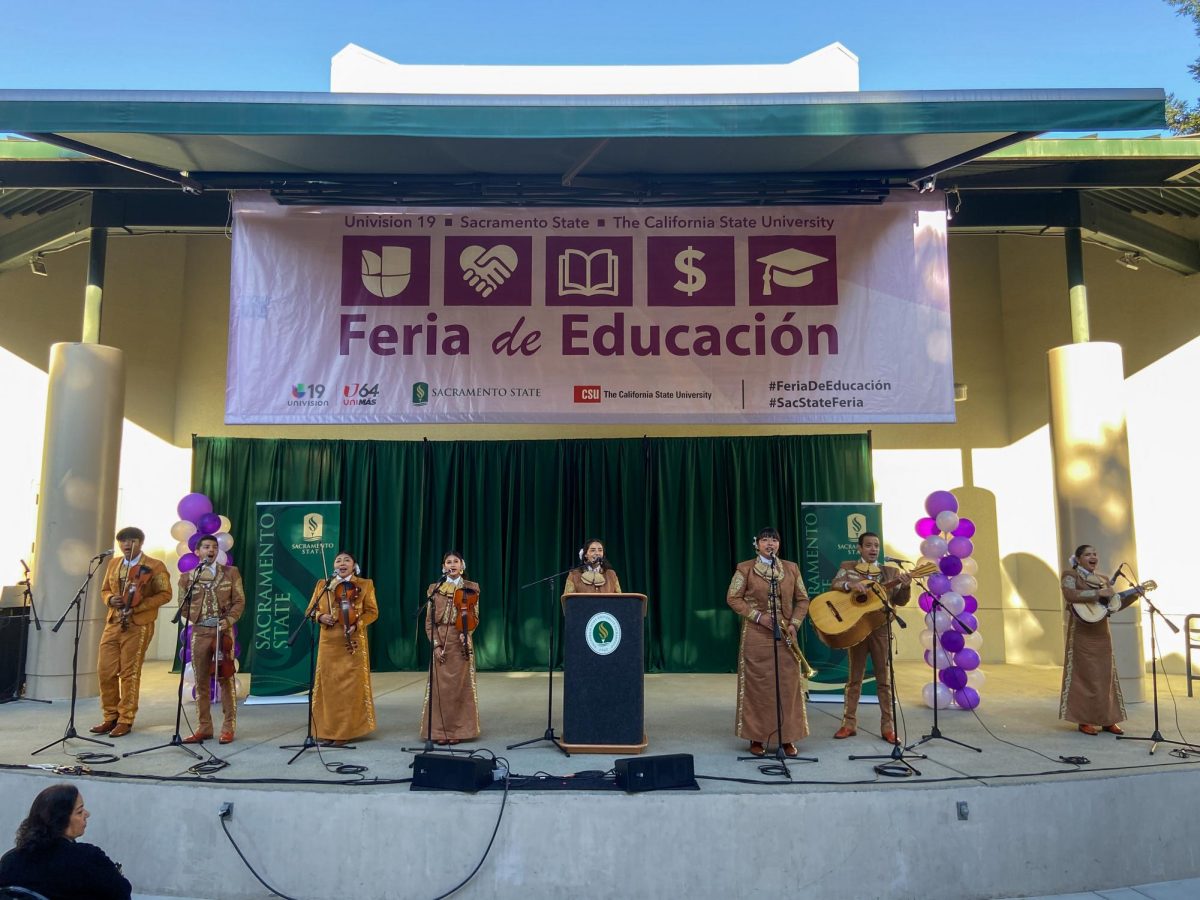
Build the wall • Dec 15, 2016 at 8:59 pm
Biased there much? Y’all need to chill on this crap.